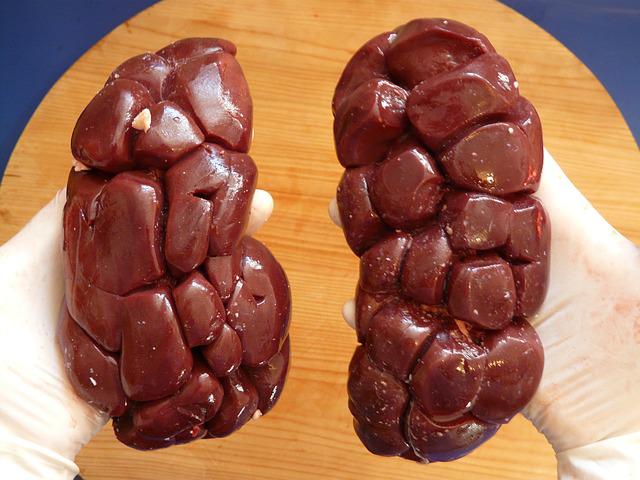Kidney-Pulmonary Crosstalk from Pathophysiological Perspective

Downloads
Visconti L, Santoro D, Cernaro V, Buemi M, Lacquaniti A. Kidney-Lung Connections in Acute and Chronic Diseases: Current Perspectives. J Nephrol. 2016;29(3):341–8.
Fisher M, Neugarten J, Bellin E, Yunes M, Stahl L, Johns TS, et al. AKI in Hospitalized Patients with and without COVID-19: A Comparison Study. J Am Soc Nephrol. 2020;31(9):2145–57.
Hirsch JS, Ng JH, Ross DW, Sharma P, Shah HH, Barnett RL, et al. Acute Kidney Injury in Patients Hospitalized with COVID-19. Kidney Int. 2020;98(1):209–18.
Vieira Jr JM, Castro I, Curvello-Neto A, Demarzo S, Caruso P, Pastore Jr L, et al. Effect of Acute Kidney Injury on Weaning from Mechanical Ventilation in Critically Ill Patients. Crit Care Med. 2007;35(1):184–91.
Empitu MA, Kadariswantiningsih IN, Thaha M, Nugroho CW, Putri EAC, El Hakim Z, et al. Determiner of Poor Sleep Quality in Chronic Kidney Disease Patients Links to Elevated Diastolic Blood Pressure, hs-CRP, and Blood-count-based Inflammatory Predictors. Indones Biomed J. 2019;11(1):100–6.
Greco A, Rizzo MI, De Virgilio A, Gallo A, Fusconi M, Pagliuca G, et al. Goodpasture's Syndrome: A Clinical Update. Autoimmun Rev. 2015;14(3):246–53.
Gallagher H, Kwan JTC, Jayne DRW. Pulmonary Renal Syndrome: A 4-Year, Single-Center Experience. Am J Kidney Dis. 2002;39(1):42–7.
Tang W, McDonald SP, Hawley CM, Badve S V, Boudville NC, Brown FG, et al. Anti-Glomerular Basement Membrane Antibody Disease is an Uncommon Cause of End-Stage Renal Disease. Kidney Int. 2013;83(3):503–10.
Cui Z, Zhao M-H. Advances in Human Antiglomerular Basement Membrane Disease. Nat Rev Nephrol. 2011;7(12):697–705.
Yang R, Cui Z, Zhao J, Zhao M-H. The Role of HLA-DRB1 Alleles on Susceptibility of Chinese Patients with Anti-GBM Disease. Clin Immunol. 2009;133(2):245–50.
Lahmer T, Heemann U. Anti-Glomerular Basement Membrane Antibody Disease: A Rare Autoimmune Disorder Affecting the Kidney and the Lung. Autoimmun Rev. 2012;12(2):169–73.
Pedchenko V, Bondar O, Fogo AB, Vanacore R, Voziyan P, Kitching AR, et al. Molecular Architecture of the Goodpasture Autoantigen in Anti-GBM Nephritis. N Engl J Med. 2010;363(4):343–54.
West SC, Arulkumaran N, Ind PW, Pusey CD. Pulmonary-Renal Syndrome: A Life Threatening but Treatable Condition. Postgrad Med J. 2013;89(1051):274–83.
Rowaiye OO, Kusztal M, Klinger M. The Kidneys and ANCA-Associated Vasculitis: from Pathogenesis to Diagnosis. Clin Kidney J. 2015;8(3):343–50.
Furuta S, Jayne DRW. Antineutrophil Cytoplasm Antibody–Associated Vasculitis: Recent Developments. Kidney Int. 2013;84(2):244–9.
Kallenberg CGM. Pathogenesis of ANCA-Associated Vasculitides. Ann Rheum Dis. 2011;70(Suppl 1):i59–63.
Panitchote A, Mehkri O, Hastings A, Hanane T, Demirjian S, Torbic H, et al. Factors Associated with Acute Kidney Injury in Acute Respiratory Distress Syndrome. Ann Intensive Care. 2019;9(1):1–10.
Sharkey R, Mulloy EM, O'Neill SJ. Acute Effects of Hypoxaemia, Hyperoxaemia And Hypercapnia on Renal Blood Flow in Normal and Renal Transplant Subjects. Eur Respir J. 1998;12(3):653–7.
Ricksten S-E, Bragadottir G, Redfors B. Renal Oxygenation in Clinical Acute Kidney Injury. Annu Updat Intensive Care Emerg Med 2013. 2013;679–95.
Kuiper JW, Groeneveld ABJ, Slutsky AS, Plotz FB. Mechanical Ventilation and Acute Renal Failure. Crit Care Med. 2005;33(6):1408–15.
Lai C-C, Wu C-H, Wang Y-H, Wang C-Y, Wu V-C, Chen L. The Association between COPD and Outcomes of Patients with Advanced Chronic Kidney Disease. Int J Chron Obstruct Pulmon Dis. 2018;13:2899.
Chen C-Y, Liao K-M. Chronic Obstructive Pulmonary Disease is Associated with Risk of Chronic Kidney Disease: A Nationwide Case-Cohort Study. Sci Rep [Internet]. 2016;6(1):25855. Available from: https://doi.org/10.1038/srep25855
Fajgenbaum DC, June CH. Cytokine Storm. N Engl J Med. 2020;383(23):2255–73.
Amin M, Sitepu A. Pendekatan Terapi Asthma-COPD Overlap (ACO). Jurnal Respirasi. 2017; 3(3): 97-105. [CrossRef]
Ahmadian E, Hosseiniyan Khatibi SM, Razi Soofiyani S, Abediazar S, Shoja MM, Ardalan M, et al. COVID"19 and Kidney Injury: Pathophysiology and Molecular Mechanisms. Rev Med Virol. 2021;31(3):e2176. [CrossRef] [PubMed]
Thaha M, Kadariswantiningsih IN, Empitu MA. Association of High Blood Pressure with Elevated Oxidative Stress, Inflammatory Marker and Albuminuria in Chronic Kidney Disease Patients. J Med. 2019;20:12–8. [CrossRef]
Kadariswantiningsih IN, Thaha M, Nugroho CW, Empitu MA. Thiol-Producing Microbiota of the Intestine Modulate Oxidative Stress and Inflammation in Chronic Kidney Disease. Bali Med Journal; 2019 Vol. 8(1): 307-31. [CrossRef]
Scheel PJ, Liu M, Rabb H. Uremic Lung: New Insights into a Forgotten Condition. Kidney Int. 2008;74(7):849–51. [PubMed]
Guo C, Wu T, Zhu H, Gao L. Aquaporin 4 Blockade Attenuates Acute Lung Injury through Inhibition of Th17 Cell Proliferation in Mice. Inflammation. 2019;42(4):1401–12. [PubMed]
Ronco C, Reis T, Husain-Syed F. Management of Acute Kidney Injury in Patients with COVID-19. Lancet Respir Med. 2020;8(7):738–42. [CrossRef]
Empitu MA, Kadariswantiningsih IN, Aizawa M, Asanuma K. MAGI-2 and Scaffold Proteins in Glomerulopathy. Am J Physiol Physiol. 2018; 314(2): 181-189. [PubMed]
Copyright (c) 2022 Sharifa Audi Salsabila, Alfian Nur Rosyid, Maulana Antiyan Empitu, Ika Nindya Kadariswantiningsih, Satriyo Dwi Suryantoro, Mutiara Rizki Haryati, Mochammad Thaha, Yusuke Suzuki

This work is licensed under a Creative Commons Attribution-ShareAlike 4.0 International License.
1. The journal allows the author to hold the copyright of the article without restrictions.
2. The journal allows the author(s) to retain publishing rights without restrictions.
3. The legal formal aspect of journal publication accessibility refers to Creative Commons Attribution Share-Alike (CC BY-SA).
4. The Creative Commons Attribution Share-Alike (CC BY-SA) license allows re-distribution and re-use of a licensed work on the conditions that the creator is appropriately credited and that any derivative work is made available under "the same, similar or a compatible license”. Other than the conditions mentioned above, the editorial board is not responsible for copyright violation.





































 JR (
JR (